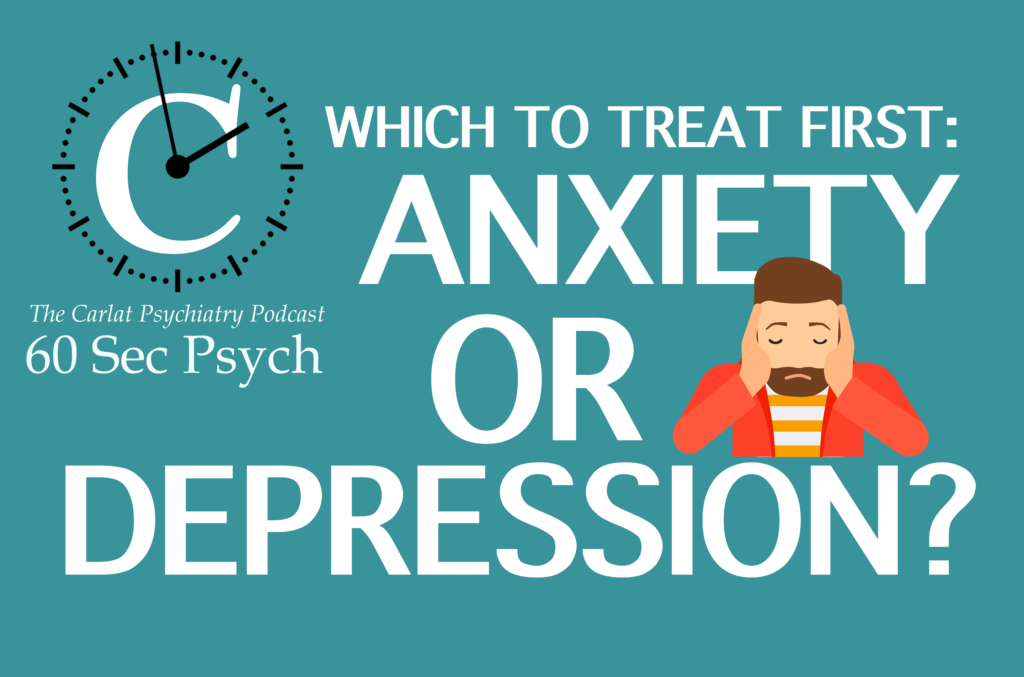Which to Treat First: Depression or Anxiety? [60 Sec Psych]
, Volume , Number ,
https://www.thecarlatreport.com/#
This month Dr. Jan Spiker and colleagues from Amserdam published an editorial on how to approach comorbid depression and anxiety. They base their suggestions on two recent meta-analyses that found comorbid symptoms decreased when the more clinically significant disorder was treated. Spijker J, Muntingh A, Batelaan N. Advice for Clinicians on How to Treat Comorbid Anxiety and Depression [published online ahead of print, 2020 Apr 15]. JAMA Psychiatry. 2020;10.1001 [Link]
Published On: 6/19/2020 Duration: 2 minutes, 29 seconds Transcript: Depression and anxiety often occur together, and we don’t have a good system to figure out which one is the primary disorder. DSM-5 lumps most of these under the broad umbrella of “anxiety specifier,” recognizing that the presence of anxiety is important ─ as it predicts a worse outcome ─ but that we haven’t figured out much that’s more specific than that. This month Dr. Jan Spiker and colleagues from Amserdam published an editorial on how to approach comorbid depression and anxiety. They base their suggestions on two recent meta-analyses that found comorbid symptoms decreased when the more clinically significant disorder was treated. Here are some clinical pearls from the editorial: Start treatment for the more significant disorder first, rather than the one that started earliest in the patient’s life history. In practice, the “most significant” is usually the one that the patient is most concerned with. Got feedback? Take the podcast survey.




Leave A Comment
You must be logged in to post a comment.